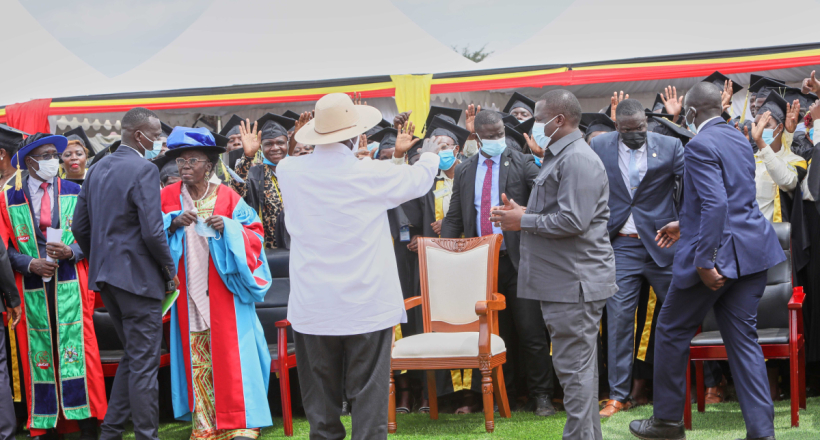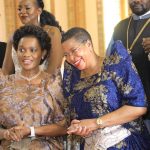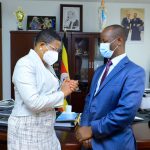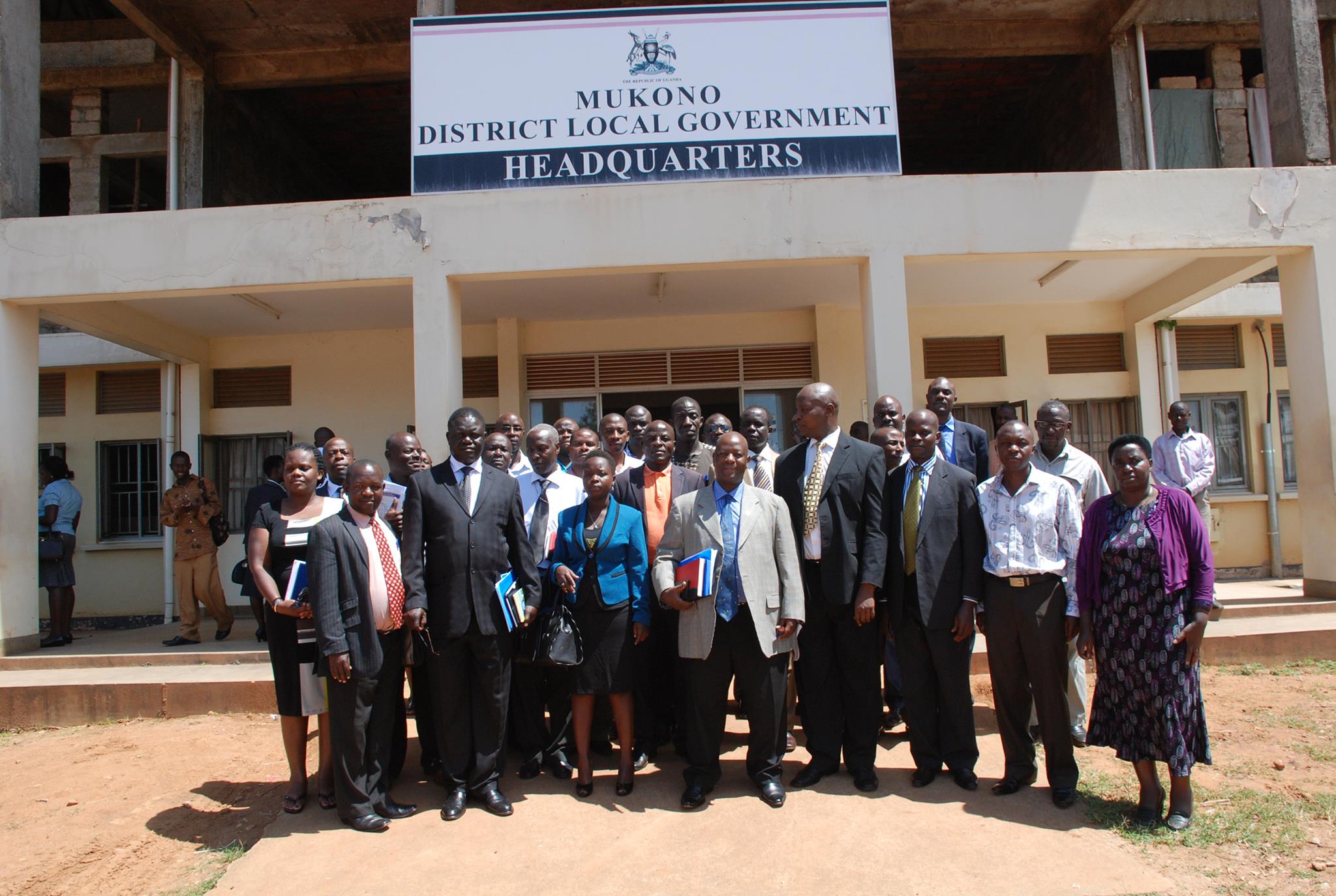(Kampala) – President Yoweri Museveni has committed to expanding Kiswahili language education in Uganda, underscoring its value in promoting regional trade and unity. Museveni made the announcement during the graduation of 304 Kiswahili students from a year long course at the National Resistance Movement (NRM) Secretariat.
Museveni encouraged the graduates to become future Kiswahili instructors, reminding them of the importance of mastering grammar and vocabulary to effectively pass on the language. “We are going to push the programme, and you will be the teachers now. But you must perfect the vocabulary and the tenses,” he said at the ceremony, held at Kyambogo University grounds.
Unlike tribal languages specific to certain ethnic groups, Museveni argued, Kiswahili serves as a unifying language in East Africa. “It began as a business language, adopted by coastal communities in East Africa, and has since spread across the region,” he explained. Museveni noted his own learning journey, saying that in 1968 he knew no Kiswahili but picked up some vocabulary while studying in Mozambique.
Museveni also contributed 100 million shillings to a Kiswahili savings and credit cooperative (SACCO), supporting the language’s promotion.
First Deputy Prime Minister and Minister of East African Community Affairs, Rebecca Kadaga, praised Museveni’s support for the Kiswahili initiative. Kadaga clarified that teaching Kiswahili would not replace local languages, noting that many people already speak multiple languages, including English, and will soon learn French.
NRM Secretary-General Richard Todwong explained that he introduced Kiswahili classes at the NRM Secretariat after discussions with Kiswahili experts within the government. Starting with 30 students, mostly civil servants, the program quickly expanded to over 300 students taking lessons twice weekly. Todwong expressed concerns about limited space, which restricts further enrollment.
| Key Figures | Role | Statement or Contribution |
|---|---|---|
| President Museveni | Head of State | Advocated for Kiswahili education, pledged 100 million UGX to SACCO |
| Rebecca Kadaga | First Deputy Prime Minister | Supported Kiswahili initiative, addressed misconceptions about language replacement |
| Richard Todwong | NRM Secretary-General | Initiated Kiswahili classes at NRM, highlighted space challenges |
| Steven Bwire | Kiswahili Program Coordinator | Committed to teaching Kiswahili until half of Uganda’s population is proficient |
To promote NRM’s values and the socio-economic development of Ugandans, Todwong announced the launch of a digital library for the public to access party archives and resources. He requested Museveni to provide his written works for inclusion in the library and urged government support to help expand the Kiswahili program nationwide, citing high demand for language education.
Steven Bwire, the Kiswahili program coordinator, assured Museveni that the initiative would continue until at least half of Ugandans could speak the language, signaling a long term commitment to making Kiswahili a widespread language in Uganda.



















